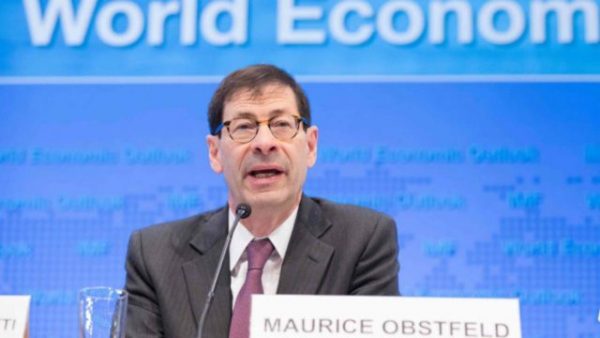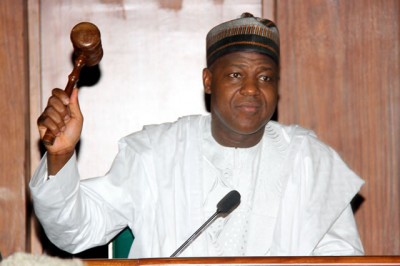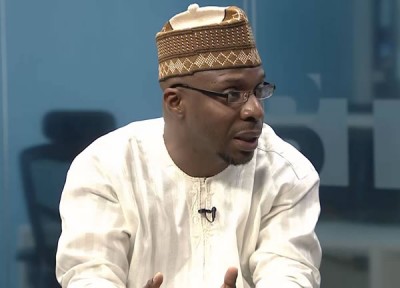Nigeria’s economy projected to grow 2.1% in 2018

• To shrink 1.9% next year
• IMF lauds CBN monetary policy
Nigeria’s economy is projected to accelerate to 2.1 per cent this year, up from the 0.8 per cent in 2017, riding on the back of exit from its worst recession in over two decades.
The International Monetary Fund (IMF), said this yesterday in Washington D.C. at the presentation of the World Economic Outlook (WEO) April 2018.
The WEO, which also serves as a World Economic and Financial Surveys, however, forecast that the country’s growth rate will slip back to 1.9 per cent by 2019, although it did not say, but presumed to be as a result of the impact of the forthcoming general elections next year.
Nigeria’s growth projection in 2018 falls far below the estimate for sub-Saharan Africa at 3.4 per cent, but it is stronger by 0.2 per cent estimated by the global financial group in its October WEO forecast.
The IMF, a member of the World Bank Group, attributed the country’s growth acceleration to “improved oil prices, revenue, and production, and recently introduced foreign exchange measures that contribute to better foreign exchange availability.”
The Group’s assertion may well be an open acknowledgement of the Central Bank of Nigeria (CBN’s) strict monetary policy especially in regards to the forex, which it capped at an official rate of N306/$1, but sells for N360/$1 in the open market, and refused to open it up to the vagaries of market forces.
Instead, the apex bank preferred to constantly intervene in the inter-bank forex market to ease demand pressure for key sectors of the economy. At the last intervention on March 27, the CBN released about $210million, where the Wholesale sector got the largest chunk of $100million, while the Small and Medium Enterprises (SMEs), which the Federal Government is trying to promote due to its employment generation capacity, and the invisibles sectors each got $50million.
The IMF WEO admitted that the CBN’s monetary policy accommodation supports Nigeria’s fiscal policy.
Generally, the WEO projects that growth in emerging market and developing economies will also rise to 4.9 per cent this year, and higher to 5.1 per cent in 2019, compared with 4.8 per cent in 2017.
At a press conference, Tuesday, to mark the opening of the IMF/World Bank Spring Meetings, the Economic Counselor and Director, Research Department, IMF, Maurice Obstfeld, noted that the world economy continues to show broad-based momentum.
But he equally pointed out that the broad-based conflict over trade, particularly between the United States and China, “presents a jarring picture.”
He recalled that the global economic growth forecast at 3.9 per cent for this year and next, was updated three months ago based on con “continuing strong performance in the euro area, Japan, China, and the United States, all of which grew above expectations last year.”
But Obstfeld warned that “Despite the good near-term news, longer-term prospects are more sobering,” because the advanced economies are “facing aging population, falling rates of labour force participation, and low productivity growth,” and “will likely not regain the per capita growth rates they enjoyed before the global financial crisis.”
Economic experts in Nigeria constantly urge the Federal Government to take advantage of its youthful population to grow its manpower skills, and also increase minimum wage to buffer high inflation rates, which the IMF hopes would “moderate slightly in 2018 and 2019, but is expected to remain in double digits…” in large economies like Nigeria, and Angola in sub-Saharan Africa.







